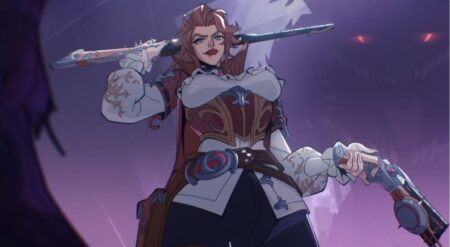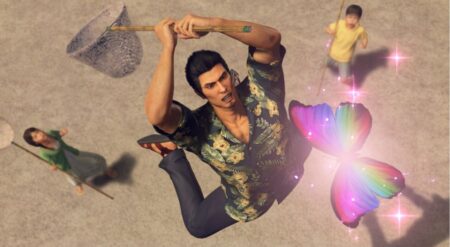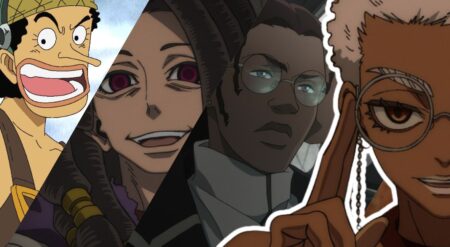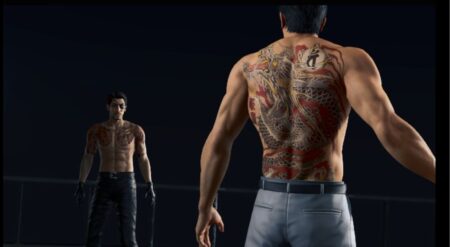Prime Video’s Like a Dragon: Yakuza is out in full, an adaptation that was eagerly awaited by fans. Following the story of a quartet leaving an orphanage and getting drawn into a world of crime, it loosely adapts the story from the first game, Yakuza Kiwami. Fans were initially excited about the series, but have been left disappointed after watching. The show is a solid yakuza show, rife with crime and intrigue, focused on a strong cast of characters. But as an adaptation of the beloved series, it misses the mark for a number of reasons. It does do some things better, but those are quickly overshadowed by everything it does not. There are a ton of spoilers for both the show and the games below, so beware!
One of the biggest upfront issues with the series is that it doesn’t seem to know who the characters are. When bringing any property across media lines, there will and should be, inherently different aspects. What shouldn’t change is the core conceit of who these characters are. Kazuma Kiryu, for example, is stoic and kicks ass, sure, but also makes choices that seem to betray the Kiryu we’ve come to know from the games. In the show, Kiryu (Ryoma Takeuchi) says he wants to be the Dragon of Dojima, chasing a title that he wants to embody.
In the games, the Dragon of Dojima is a title put on him. He doesn’t want the responsibility or notoriety. Instead, his exploits place the moniker firmly on his shoulders. He isn’t after any sort of fame or money, instead content on living a decent life with those he cares about. The ambitions of the show’s Kiryu feel disingenuous like we’re watching somebody with the same name rather than a character we care deeply about. He’s much better in 2005 and by the end of the show, feeling more like the Kiryu we know and love, but it feels like a while before we see him shine.

This doesn’t hold true for every character, though. Yumi Sawamura (Yumi Kawai) is a much more powerful force with actual agency in the show, rather than being a damsel in distress with amnesia. She’s scorned and angry, with the warm heart she’s known for in the games seeping through at critical moments. It’s a welcome change that makes her feel like an actual character rather than being a plot device. Despite his limited screen time, Majima Goro (Munetaka Aoki) feels as delightfully wacky and dangerous as he does in the games.
Nishikiyama Akira (Kento Kaku) is handled largely really well, with his duality of being light-hearted and optimistic in 1995 to a melancholic and cold version we can’t recognize in 2005. Miho is fascinating to see, as she’s a footnote in the original games. Her presence is felt, sure, but actually building a relationship with her makes her inevitable loss much more pronounced. Like a Dragon: Yakuza does understand some of these characters but is critically missing essential pieces of the puzzle.
One of the biggest missed opportunities is entirely Haruka. She feels relatively true to the Haruka we know from the games. She’s warm and kind-hearted despite being treated badly by the world, while at the same time, doing what she believes is right. The main issue is her separation from Kiryu. Yakuza Kiwami spends a ton of time building up the relationship between the two, eventually growing to a father/daughter relationship. It pushes both characters to grow, as they learn to depend and love one another.

Their companionship is integral to the DNA of what makes the entire Yakuza franchise work: she’s the beating heart that Kiryu fights for. To separate them almost entirely would be like separating Joel and Ellie in HBO’s The Last of Us. It makes it feel like a core pillar of the games is left by the wayside, one that changes and grows so much alongside both the characters and the series.
Similarly, something the show changes very quickly is the relationship between Shintaro Kazama, Kiryu, and Nishiki. In the games, Kazama is deadly behind the scenes, working in the dark to do what he needs to do, all while showing vulnerability and honesty to Kiryu and company.
He’s revered by Kiryu and Nishiki, a father figure that they desperately want to be like. Kazama’s arc across the games is central to who Kiryu is and becomes. Meanwhile, the show seems to make Kazama seem like a washed-up has-been.
Kiryu and Nishiki loathe him, almost like bratty teenagers lashing out against a parent. Even when Kazama finally starts to make moves, he’s asking for help in a way that feels more like he’s begging than strategically getting it. His humanity and effort to make good for past mistakes are central instruments from which Kiryu learns. Even in the show’s final moments, Kiryu finding out that Kazama killed his parents comes from Nishiki rather than the confession from Kazama himself. It feels like a reveal meant to cause drama rather than a true moment between the two characters.
Another pivotal moment that I think the show fails is Kiryu’s decision to take the fall for Nishiki’s murder of Dojima. It’s the reason that Kiryu goes to prison, but it’s also our earliest example of who Kiryu is in the games. In Yakuza Kiwami, Nishiki kills Dojima because he is kidnapped and is about to assault Yumi. Kiryu arrives after Nishiki pulls the trigger. He quickly tells Nishiki and Yumi to run, equally blaming himself for not being there for his family and taking on the weight to let them be free.

He knows Nishiki’s sister, Yuko, has surgery around the corner. Letting Nishiki escape will give him more time with his dying sister. It’s an incredibly important moment that showcases Kiryu’s selflessness, loyalty, and willingness to do anything for those he cares about.
In the show, Nishiki kills Dojima for lying to him about Miho’s illness and recovery potential. I do think that this is a really interesting take on the situation that could have worked. My major issue is that it happens after Miho (Hinano Nakayama) dies. Nishiki’s fall to the dark side is gradual and builds up over a ton of loss in the games, but it happens almost immediately here. I completely and totally understand Nishiki’s anger and drive for revenge, but it makes Kiryu’s subsequent sacrifice less impactful.
If it had happened before Miho’s passing, it would have made Kiryu’s selfless act much more reasonable. If Nishiki had found out about the betrayal, choosing to seek out Dojima instead of being there right before Miho’s critical moments would have given the moment the impact it has had on the games. Doing it after she passes, especially after choosing to win a fight that Nishiki believed could have saved Miho if Kiryu had lost, makes it even more confusing.
One of the significant departures from the games is the lack of the zany, wild comedy that the series is known for. Yakuza is known for its ability to walk the line firmly between serious and hilarious, a tonal whiplash that works because it grounds the ridiculous in heart and character. Like a Dragon: Yakuza only has the serious half, and honestly, I do think this is a change that makes sense.
The series seems to be aimed at a wide audience, and the wild swings between light and dark may not have landed the same way that they do in the games. I’m okay with Season 1 being the origin story, a setup for understanding the base motivations for these characters. The fact that the show only had six episodes doesn’t help either, without much time for either side of the duality to properly breathe.

All that being said, I enjoyed parts of Like a Dragon: Yakuza and genuinely have hope for the future of the series. Kiryu, by the end of the story, does start to feel like the character we know and love. His vulnerability and heart become more center stage, with his drive to do anything for those he loves on constant display.
Nishiki’s story is handled mostly well, with his actor knocking it out of the park. Yumi is a badass who has a future she didn’t have in the games: an opportunity to do more with a classic character. Majima is pitch-perfect, and I’d gladly take much more of him. Haruka has a ton of potential to be more than she is now.
If greenlit, Season 2 can move away from the backstory and focus entirely on the present. Many of my issues with the show can be rectified or ironed out. They could bring Kiryu and Haruka together meaningfully. Kazama’s prestige could be better brought to light, building on the reveal in the show’s final moments.
The groundwork is solid, with talented actors backing these beloved characters. The levity the series is known for can be brought in to some degree, not just by taking things verbatim but by offering the characters to showcase their humanity and heart in ridiculous moments. Like a Dragon: Yakuza has all the pieces it needs for a bright future, and I hope it capitalizes on them.
Like a Dragon: Yakuza is out now, exclusively on Prime Video.







